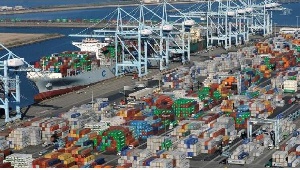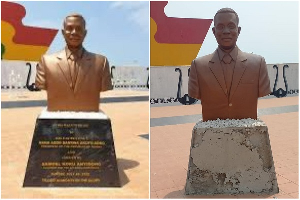India's trade with Africa is nearing $100 billion, and cumulative investments surpass $75 billion.
This, says Special Secretary-Economic Relations and Development Partnership Administration (ER&DPA), Ministry of External Affairs, India, Shri P. Kumaran, represents his country's commitment to building strong, sustainable economic ties with Africa through mutual respect and collaboration.
Kumaran indicated that these achievements reflect India's growing role as one of Africa's largest economic partners and demonstrate his country's focus on promoting regional development and capacity-building.
"India and Africa share a multifaceted economic relationship, with India being Africa's fourth-largest trading partner and the fifth-largest investor. Our trade with Africa is touching $100 billion and our cumulative investments in Africa are over $75 billion.
"India's foreign policy toward Africa is based on four pillars: development partnership and capacity building; trade and investment; strong people-to-people ties; and defence and maritime security. Our priorities are guided by the principles of non-interference and mutual respect," he stated.
He made these remarks while speaking to journalists from Central and West African countries who were in India for a familiarisation programme.
The Special Secretary told the journalists that India's and Africa's relationship is guided by mutual respect, shared goals, and a commitment to sustainable development.
Global South’s central role
Mr. Kumaran also emphasised the need for greater inclusion and influence of the Global South in tackling complex global issues.
He shed light on India's vision for an empowered Global South capable of addressing shared challenges, from economic growth to sustainable development.
He highlighted the collective experience of Global South nations – defined by historical struggles such as colonialism & economic exploitation and the current challenges of limited representation in global governance. These experiences, he argued, underscore the need for these countries to have a central role in global policy discussions.
"Today, we face new challenges like lingering effects of the COVID-19 pandemic, climate change, geopolitical upheavals and the widening digital divide. These add to burdens we already carry in attempting to achieve the Sustainable Development Goals (SDGs).
"Together, the Global South comprises 85% of the world's population, and our development needs must be central to the global governance agenda," he stressed.
India’s advocacy for Global South at G20
India, as president of the G20 in 2023, used its leadership position to push for the inclusion of African voices – culminating in the African Union's admission as a permanent G20 member.
This, Mr. Kumaran explained, illustrates India's commitment to amplifying the concerns of developing nations. "Our G20 presidency allowed us to elevate the concerns of developing countries," he said, noting that India's advocacy is an essential step toward achieving greater representation in international forums.
Infrastructure projects and key achievements
In Africa, India has funded 336 projects in 42 countries, with 208 already completed and the rest in progress or planning stages. These projects span vital infrastructure sectors such as transportation, energy, healthcare and education. For example, India financed the construction of the Presidential Palace in Ghana, the Kosti Power project in Sudan and the Upper Ruvu Water Treatment Plant in Tanzania, each of which has contributed significantly to local development.
Besides infrastructure, India has made strides in healthcare and education – helping establish facilities like vocational training centres and healthcare institutions that provide local communities with critical services.
The Indian government has also launched digital infrastructure projects to expand financial connectivity and reduce transaction costs for citizens of the Global South.
In Africa, 23 Centres of Excellence in IT have been established, training nearly 57,000 IT graduates since 2014. Additionally, vocational training centres across Africa have equipped 10,000 young people with technical and entrepreneurial skills, further empowering local communities.
"Our goal is not just to build infrastructure but also empower people, creating a lasting impact on the communities we serve," Mr. Kumaran noted.
Scholarships offered through the Indian Council for Cultural Relations (ICCR) have also played a role in deepening India-Africa ties, with 908 African students receiving ICCR scholarships for the 2023-2024 academic year.
Business News of Wednesday, 13 November 2024
Source: thebftonline.com

















